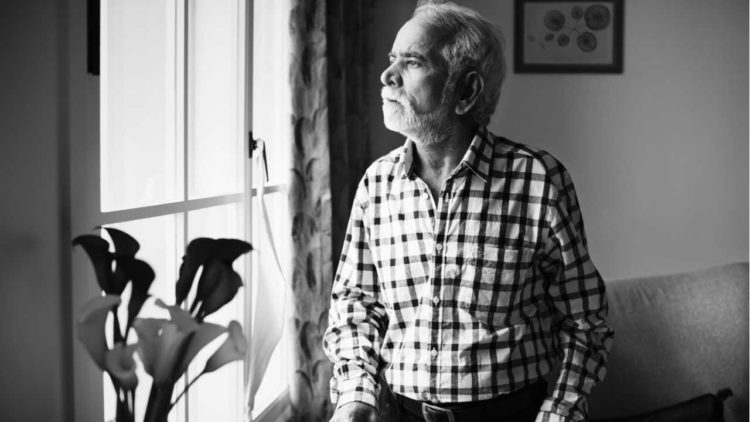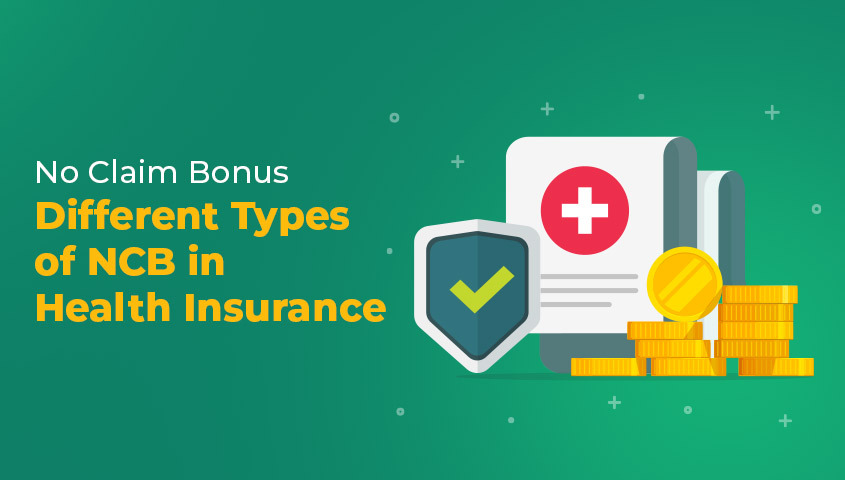
The rising rate of medical inflation has made it important to have health insurance covers, particularly for elderly parents, an important necessity. With the age of a person, health deteriorates. Hence, senior citizen’s medical bill keeps rising with their age. Considering the high cost, they may have to be more dependent on the family financially. Many salaried people can buy health insurance coverage for their parents through employer-sponsored schemes. However, that’s not sufficient! To have an adequate cover, it’s important to avail a standalone health insurance cover for parents. When it comes to buying health insurance, the market is flooded with a variety of plans for choice. However, health insurance plans for senior citizens are limited and restricted. Health insurance plans offered by the private insurance companies for senior citizens are quite expensive considering the ‘high risk’ with respect to age.
Are you looking for health insurance plans for your elderly parents? Do you want to give them the best health insurance plan to take care of their healthcare needs? Then, it’s important to know that there are several government-sponsored health insurance schemes for senior citizens that are exclusively designed to address the unique healthcare needs of senior citizens in a cost-effective manner. Click here, enter a few details & choose from the most appropriate senior citizen health insurance policy for your parents.
With increased awareness and importance of health insurance among people, the health insurance industry has witnessed major growth in recent years. In order to address the special healthcare needs of senior citizens conveniently without any ambiguity, IRDAI (Insurance Regulatory and Development Authority of India) has laid down many rules and regulations. Before we understand government health insurance for senior citizens, let’s take a look at the rules and regulations laid down by the Insurance Regulator, IRDAI on senior citizen health insurance schemes.
Government Senior Citizen’s Health Insurance Policy – IRDAI Rules and Regulations
Following are the regulatory actions by IRDAI with regards to senior citizen health insurance policies:
- IRDAI has constituted a committee on senior citizen health insurance to go into special requirements. Various recommendations from this committee were also implemented.
- As per IRDAI, individuals up to the age of 65 years should be allowed to buy health insurance
- It’s mandatory for insurance providers to provide the reason for the rejection in writing for any senior citizen health insurance application.
- Senior citizen health insurance policyholder should be given an option to change his/her TPA (Third Party Administrator) wherever practicable
- If the risk is accepted by the insurance provider, at least 50% of the cost for pre-insurance medical check-ups may be reimbursed in senior citizen health insurance policy.
- No insurance provider can refuse to renew a health insurance policy for senior citizens unless it is on the grounds of moral hazard, fraud or misrepresentation.
Importance for Health Insurance for Senior Citizen
There are multiple reasons which make it imperative and necessity to have health insurance for senior citizens in the family. Following are some of the reasons to have health insurance for senior citizens or elderly parents in the family.
Senior citizens are more prone to illnesses:
Health issues start arising from ageing. With the deterioration in health and age-related illnesses, senior citizens may be required to visit hospitals often. Having a health cover is important to bear the expensive healthcare costs.
Insurance helps you avoid debt crisis:
As you age, you may get retired from your job and some may even have to depend on children. Hospitalisation costs can be huge. Sometimes you may have to seek money or loan from someone outside. In order to avoid additional debts at an older age, availing health insurance can provide required coverage at a competitive rate.
Financial security gives peace of mind:
Falling sick or health issues are common with increasing age. Availing health insurance provides a sense of financial security among senior citizens.
Government Senior Citizen Health Insurance Scheme
Basically, there are four public sector non-life insurance companies through which health insurance plans are introduced for the well-being of the country. Below are the public sector insurers that offer health insurance plan for senior citizens.
- United India Insurance Company
- The New India Assurance Company Limited
- The Oriental Insurance Company Limited
- National Insurance Company Ltd.
Following are the government health insurance for senior citizens offered through these companies.
The New India Assurance’s Senior Citizen Mediclaim Policy
Senior Citizen Mediclaim Policy offered by The New India Assurance Company Limited is exclusively designed for senior citizens keeping in mind their unique healthcare requirements. Following are the important features of Senior Citizen Mediclaim Policy.
Features of The New India Assurance’s Senior Citizen Mediclaim Policy
- The policy reimburses the cost of health check-up once in a block of four claim free-years
- 10% family discount is offered on policy premium in case spouse is also covered
- 10% discount is offered on opting for voluntary excess of INR 10,000
- Additional 10% premium is charged for renewals at the age of 81 to 85 years
- Additional 20% premium is charged for renewals at the age of 86 to 90 years
- Additional 10% premium is charged for covering pre-existing illnesses such as diabetes and hypertension from the date of policy inception.
Income Tax Benefits under Section 80D of the Income Tax Act, 1961.
Eligibility conditions for The New India Assurance’s Senior Citizen Mediclaim Policy
| Entry age | 60 year to 80 years (policy can be continued up to 90 years if renewed without break) |
| Renewability | Up to 90 years |
| Sum insured | INR 1 lakh to INR 1.5 lakhs |
| Waiting period for a pre-existing illness | 18 months |
| Pre-acceptance health check-up | Required |
| Co-payment | No co-payment clause applicable |
Scope of Coverage in The New India Assurance’s Senior Citizen Mediclaim Policy
Following are the major coverages offered under the Senior Citizen Mediclaim Policy:
- Inpatient hospitalisation expenses: The expenses incurred for hospitalisation of more than 24 hours such as room, boarding expenses, nursing charges, ICU charges, surgeon, anaesthetist, specialist fees, medical practitioner, consultants fee, anaesthesia, oxygen, blood, surgical appliances, drugs, diagnostic materials, chemotherapy and radiotherapy etc.
- Pre and post hospitalisation charges: Medical expenses incurred for 30 days prior to and post 60 days of hospitalisation are covered. Limits are subjected to policy terms and conditions.
- Ambulance charges:Expenses incurred for an ambulance is covered up to a maximum of INR 1,000.
- Organ donor expenses:Hospitalisation expenses incurred on organ donor is covered.
- AYUSH Benefits: Expenses incurred for Ayurvedic, Homeopathic, Unani and Siddha treatments are covered up to a certain limit based on policy’s terms and conditions.
Exclusions under The New India Assurance’s Senior Citizen Mediclaim Policy
Following are the exclusions under the policy:
-
- Illnesses or diseases contracted within 30 days of policy commencement
- Sexually transmitted diseases such as HIV/AIDS
- Cosmetic treatments
- Dental treatments unless it is needed due to an accidental injury
- Debility and general run-down conditions
- Pregnancy and childbirth
- Vaccination and inoculation
- War and nuclear perils
Oriental Insurance’s Health of Privileged Elders (HOPE)
Oriental Insurance Company’s Health of Privileged Elders (HOPE) is a health insurance plan that is specially crafted for senior citizens that is for people aged 60 years and above. The policy comes with many attractive features.
Features of Oriental Insurance’s Health of Privileged Elders (HOPE)
- The policy is designed to cover specified diseases only
- No claim bonus is offered for claim-free years
- Discount on the premium is offered for opting for voluntary deduction
- The benefit of continuity is offered for existing mediclaim policyholders. New entrants will be charged an extra premium
- Cashless facility is available through TPA only and is limited to INR 1 lakh
Free health check-up in a block of every four claim-free years
Eligibility Criteria for Oriental Insurance’s Health of Privileged Elders (HOPE)
| Entry age | 60 years and above |
| Renewability | Life long |
| Sum insured | INR 1 lakh/2lakhs/3 lakhs/4 lakhs/5 lakhs |
| Waiting period for a pre-existing illness | 24 months |
| Pre-acceptance health check-up | Required |
| Co-payment | 20% compulsory co-payment |
Scope of Coverage in Oriental Insurance’s Health of Privileged Elders (HOPE)
Following are the coverages offered in the policy:
1. Hospitalisation expenses:
Hospitalisation for more than 24 hours is covered. Expenses incurred for in-patient care such as room rent, ICU charges, specialist fees, medical practitioner, consultants fee, surgeon, anaesthetist, anaesthesia, oxygen, blood, surgical appliances, drugs, diagnostic materials, chemotherapy and radiotherapy etc are covered.
2. Domiciliary hospitalisation benefit:
Expenses incurred for domiciliary hospitalisation for a period exceeding three days for specified disease/illness/injury are covered. However, certain illnesses/procedures are excluded from coverage as per the terms and conditions of the policy.
3. Pre and post hospitalisation charges:
Medical expenses incurred for 30 days prior to and post 60 days of hospitalisation are covered. Limits are subjected to policy terms and conditions.
4. AYUSH Benefits:
Expenses incurred for Ayurvedic, Homeopathic, Unani and Siddha treatments are covered up to a certain limit based on policy’s terms and conditions.
Exclusions under Oriental Insurance’s Health of Privileged Elders (HOPE)
Following are the exclusions under the policy:
- External congenital illnesses/conditions
- Treatments availed outside India
- Organ donor expenses
- Sexually transmitted diseases, HIV/AIDS
- Self-inflicted injuries
- Hospital admission for diagnostic purposes
- Hearing impairment and cosmetic treatment expenses
- Breach of the law, war and related perils
- Dental treatment unless initiated by accidents
National Insurance Varistha Mediclaim Policy
One of the oldest and government-backed insurance companies, National Insurance Company has designed a special health insurance policy for senior citizens called Varistha Mediclaim Policy. The plan aims to safeguard senior citizens financially against any health contingencies. The policy comes loaded with lots of attractive features.
Features of National Insurance Varistha Mediclaim Policy
Following are the features of National Insurance Varistha Mediclaim Policy:
- The policy rewards you with free health check-ups and cumulative bonus for claim-free years
- Both cashless (at network hospital) and reimbursement (at non-network hospitals) facility are offered under the policy
- Pre-existing illnesses like hypertension and diabetes are covered from the beginning of the policy.
- Coverage can be availed for paralysis and blindness at an additional cost of the premium.
- 10% premium discount can be availed by opting for voluntary co-payment.
- The policy can be availed online
Coverage can be availed for critical illness also
Eligibility Criteria for National Insurance Varistha Mediclaim Policy
| Entry age | 60 years to 80 years |
| Renewability | Life long |
| Sum insured | INR 1 lakh and INR 2 lakhs |
| Waiting period for a pre-existing illness | 12 months |
| Pre-acceptance health check-up | Not required if the insured is covered by any health insurance plan for the last three years |
| Co-payment | 10% compulsory co-payment |
Scope of Coverage for National Insurance Varistha Mediclaim Policy
Following are the coverages offered under National Insurance Varistha Mediclaim Policy:
- Hospitalisation benefits: Expenses incurred for hospitalisation such as room charges, ICU charges, nursing expenses, blood transfusion charges, surgeon, and medical practitioner, specialist fees, consultants, anaesthesia, oxygen, blood, surgical appliances, OT charges, drugs, medicines, x-ray, chemotherapy, artificial limbs etc are covered. Minimum of 24 hours of hospitalisation is needed.
- Pre and post hospitalisation charges: Medical expenses incurred for 30 days prior to and post 60 days of hospitalisation are covered. Limits are subjected to policy terms and conditions.
- Domiciliary hospitalisation benefit: Expenses incurred for domiciliary hospitalisation for a period exceeding three days for specified disease/illness/injury are covered. However, certain illnesses/procedures are excluded from coverage as per the terms and conditions of the policy.
- Ambulance charges:Expenses incurred for an ambulance is covered up to a maximum of INR 1,000.
- Critical illness cover: The policy covers critical illnesses like coronary artery surgery, cancer, multiple sclerosis, renal failure, major organ transplants and stroke
- Optional cover:Coverage for blindness and paralysis can be availed with an extra amount of premium.
Exclusions under National Insurance Varistha Mediclaim Policy
Following are the exclusions under the policy:
- Treatment expenses for any disease/injury/illness during the first 30 days of policy commencement are not covered
- Specific illnesses like cataract, benign prostatic hypertrophy, hernia, septum and related disorders, congenital internal disease, hysterectomy and piles are not covered during the first year of the policy
- Vaccination and inoculation
- Cosmetic surgery and treatment
- Self-inflicting injuries
- Pregnancy and childbirth
- HIV/AIDS
- Treatments availed outside India
United India Senior Citizens Health Insurance
United India Senior Citizen Health Insurance is an exclusive insurance product that aims to address the specific healthcare needs of elderly individuals in India. The policy is loaded with many good features.
Features of United India Senior Citizens Health Insurance
Following are the features of the policy:
- The policy covers major surgeries along with other hospitalisation expenses
- Children between 3 months to 18 years may be covered provided either or both parents are covered concurrently.
- The policy provides cover for daycare procedures
- Cashless facility is provided under the plan which can be accessed in 7000+ network hospitals across India
- Family discount of 5% is offered if one or more family members are insured.
- Free health check-up once in a block of three claim-free years
Income tax benefit can be availed under Section 80D of the IT Act.
Eligibility Criteria for United India Senior Citizens Health Insurance
| Entry age | 61 years to 80 years |
| Renewability | Life long |
| Sum insured | INR 1 lakh and INR 3 lakhs |
| Waiting period for a pre-existing illness | 48 months |
| Pre-acceptance health check-up | Required |
| Co-payment | 20% co-payment is applicable |
Scope of Coverage in United India Senior Citizens Health Insurance
Following are the coverages offered in the policy:
- Hospitalisation expenses: In-patient care expenses that include room rent, nursing expenses, ICU charges, blood transfusion charges, surgeon, and medical practitioner, specialist fees, oxygen, blood, surgical appliances, consultants, anaesthesia, OT charges, drugs, medicines, x-ray, chemotherapy, artificial limbs etc covered under the policy. However, coverage limits are as per the terms and conditions of the policy.
- Domiciliary hospitalisation benefit: Expenses incurred for domiciliary hospitalisation for a period exceeding three days for specified disease/illness/injury are covered. However, certain illnesses/procedures are excluded from coverage as per the terms and conditions of the policy.
- Pre and post hospitalisation charges: Medical expenses incurred for 30 days prior to and post 60 days of hospitalisation are covered. Limits are subjected to policy terms and conditions.
- AYUSH treatments: Treatment expenses for Ayurveda/Yoga/Unani/Siddha/ Homeopathy availed in recognised Institutes by Government are covered.
- Daycare procedures: Certain specified day care procedures that require less than 24 hours of hospitalisation are covered.
Exclusions under United India Senior Citizens Health Insurance
Following are the exclusions under the policy:
- Diseases/illness/injuries diagnosed in first 30 days of policy commencement
- HIV/AIDS
- Self-inflicted injuries, alcohol and drug abuse
- Vaccination and inoculation
- Pregnancy and childbirth
- Psychiatric and psychosomatic disorders
- General debility and run-down conditions
- Naturopathy
- Unproven experimental treatments
- Hospital admission for diagnostic purposes
- Cosmetic treatment expenses
- Breach of the law, war and related perils
- Nuclear perils
- Dental treatment unless initiated by accidents
National Health Protection Scheme – Ayushman Bharat
Honourable Prime Minister Narendra Modi has announced the world’s largest government-funded healthcare plan for Indian citizens. The scheme Ayushman Bharat or National Health Protection Scheme was launched in the year 2018 aiming to cover both preventive and promotive healthcare needs in primary, secondary and tertiary care systems. 26 states and union territories have accepted the scheme and lakhs of people have already taken benefit under the scheme. Based on the deprivation charts under the SECC (Socio-Economic Caste Census) statistics, the scheme is set to target both urban and rural poor. Rural poor are selected based on the standard of life data, urban poor is selected based on occupational categories. Following are the highlights of the scheme:
- Ayushman Bharat Yojana is set to provide yearly coverage of up to INR 5 lakhs to over 10 crore poor and vulnerable families. Ayushman Bharat plan also covers senior citizens. It is one among government health insurance for senior citizens covering the healthcare needs of all age groups.
- Scheme benefits are portable across the country with the cashless facility available from any government and private hospitals across the country.
- INR 1,200 crores are allocated for 1, 50,000 health and wellness centres to provide comprehensive health care services which include pregnancy care and maternal health services, child health, infant health services, dental care, non-communicable diseases, mental illness management, chronic communicable diseases and geriatric care emergency medicine.
#7 Key Points to Remember while Buying the Health Schemes for Senior Citizens
Following are the important factors to be considered and points to remember while comparing and choosing health insurance plans for senior citizens:
- AgeEntry age and maximum age for renewability is an important consideration. Go for plans with lifelong renewability.
- Hospital network: To reap the maximum benefits out of your insurance policy, it’s important to make use of the features at the right time. To avail cashless benefits anytime during the policy period, it’s important to choose the plan with wider hospital networks.
- Sum insured:Having adequate coverage is all the more important when you are buying health insurance. Hence, consider buying plans that can offer you the required amount of coverage.
- Waiting period:Specifically for senior citizens, lesser the waiting period better is the policy as they are prone to age-related illness.
- Fine print: It’s important to read through the fine prints, understand the scope of coverage and exclusions under the policy clearly to avoid ambiguity later.
- Specific illness cover:Depending on the individual requirement policies can be compared on the basis of specific illnesses covered.
- Cost: Usually, senior citizen plans can get expensive if you are seeking comprehensive coverage. Hence, always compare plans on a cost-benefit basis and make a need-based choice!
Documents required to buy Senior Citizen Health Insurance Plan
Following are the documents required for buying senior citizen health insurance plan:
- Age proof – Birth certificate/Passport/SSLC mark sheet/Voter ID etc.
- Identity proof –Aadhaar card/ driving license/voter’s ID/ PAN card / passport, etc
- Proof of address – Driving license /latest electricity bill/passport / telephone bill etc.
- Photographs
- Pre-acceptance medical report
Frequently Asked Questions (FAQs)
- What does domiciliary hospitalisation mean? What are the exclusions applicable under this coverage?
Domiciliary hospitalization treatment refers to treatment taken at home which would otherwise require hospitalisation. The reason for such arrangements could be the patient’s condition which makes him unable to move to a hospital or due to unavailability of beds in hospitals.
Following are the treatments/illnesses that are excluded under domiciliary hospitalization cover –
-
- Asthma
- Bronchitis
- Pyrexia of unknown origin for less than 10 days
- Diarrhoea and all types of dysenteries including gastroenteritis
- Chronic Nephritis and Chronic Nephritic syndrome
- Diabetes mellitus and Insipidus
- Influenza, cough and cold
- Epilepsy
- Hypertension
- Arthritis, Gout and Rheumatism
- All psychiatric and psychosomatic disorders
- Tonsillitis, Upper respiratory tract infection including laryngitis and Pharyngitis
- What are the tax benefits offered by senior citizen health insurance plans?The senior citizen’s health plan also allows you to cover family. Premiums paid for self, spouse, children and elderly parents can be availed tax deduction under Section 80D of the IT act. Here are the details:
Description The maximum premium for self, spouse and dependent children The maximum premium for parents Total deductions available under Section 80D of the IT Act All members of the family < 60 years of age INR 25,000 INR 25,000 INR 50,000 Self, spouse and children < 60 years age and either of the parents > 60 years age INR 25,000 INR 50,000 INR 75,000 Self > 60 years age Spouse and children < 60 years of age and both parents > 60 years age INR 50,000 INR 50,000 INR 1,00,000 - What is a ‘free-look period’?Free-look period is the initial period (usually 10 to 30 days) that allows the policyholder to go through the policy terms and conditions again and decide whether to continue with the policy or not. If an insured is not satisfied with the terms and conditions of the policy, then the policy can be cancelled within the free look period by stating the reason for cancellation.
- What is co-payment?Co-payment is a clause included in health insurance plans that state about cost-sharing between the insurer and insured. It is generally expressed in percentage terms. In health insurance policies, a co-payment clause can be applied based on age or treatment or on certain illnesses. The percentage of the admissible claim as stated in the policy needs to be paid by the insured out of his pocket before the insurer pays his part.
































